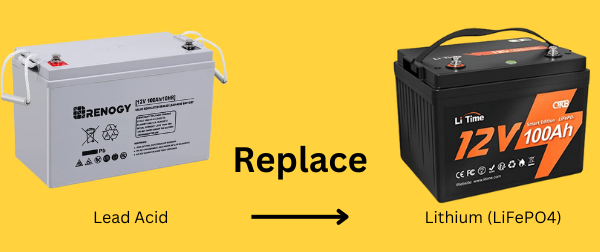
So you want to replace your lead-acid battery with a lithium (LiFePO4) battery?
In this article, I will tell you what you need to be aware of.
Let’s get started!
Key points in considering changing your system from lead acid to lithium
There are a few things you need to consider. These are:
- Charge controller voltage
- Temperature ratings
- Battery to battery charger (B2B)
- Main battery fuse
- Battery capacity monitoring
Still don’t know which lithium battery to choose? Read my buying guide for the best lithium battery here
Read my article about lead-acid VS lithium here.
Charging voltage from the charge controller
A lead-acid battery has a 3 stage charging profile, while a lithium battery has only one.
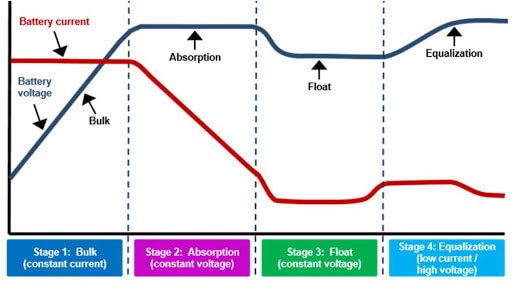
The voltage also differs between the two. That’s why you need a charge controller that can be manually programmed or changed to a lithium setting. If you want to know which setting to use, read my article about a LiFePO4 voltage chart, where I discuss the voltages for one cell, 12V, 24V, and 48V batteries.
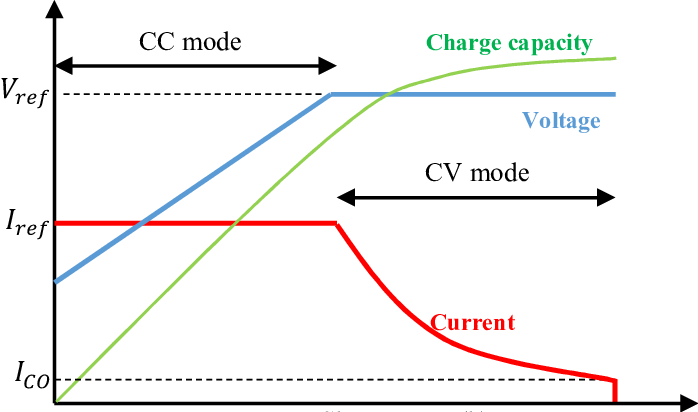
Temperature ratings
A lead-acid battery is more forgiving for temperatures. If you plan on using lithium in a place where it can freeze, you better use a battery with a heating element inside.
The ideal temperature for a lithium battery is room temperature. The lifespan of a lithium battery can be severely diminished if the temperature raises over 25°C or 77°F as you can see in the datasheet of an EVE 280Ah cell:
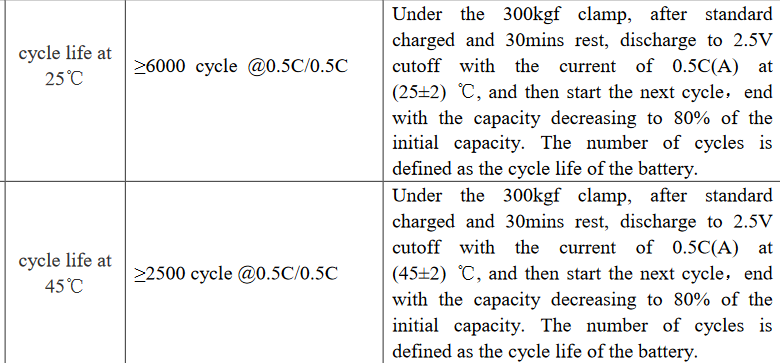
B2B charger
If your lead acid battery was charging directly from your car’s alternator, you need to make some changes.
Lithium batteries have a low internal resistance. It will demand as much current from the alternator as it can handle, leading to overheating or even burning out of your alternator. Victron did a great video about this:
That’s why you must add a B2B charger from your starter battery to your household battery. The B2B (battery to battery) charger will regulate the current so the alternator doesn’t burn out. Read my article about B2B chargers here.
Main battery fuse
Lithium batteries can deliver high amounts of current if it’s shorted. This will result in a current ten or more times the battery’s capacity. For a 100Ah battery, this will be more than 1000A. This means that a standard fuse like an ANL or MIDI fuse will ‘bridge’ the contacts through an arc, and the current will continue to flow (read more about it here).
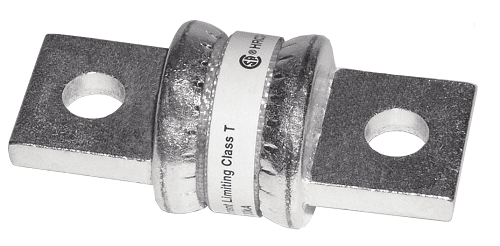
This is not a good situation to be in. Therefore we need to replace the fuse if we have a big battery. I recommend using a class-T fuse as your main battery fuse or an NH00 if you live in Europe (cheaper than class-T).
Upgrading your battery monitoring system
If you have lead-acid batteries, you can easily monitor the capacity of your battery by using a voltage meter. The voltage curve of a lithium battery is very flat compared to lead acid. Therefore it’s unreliable to read your battery’s capacity using voltage.
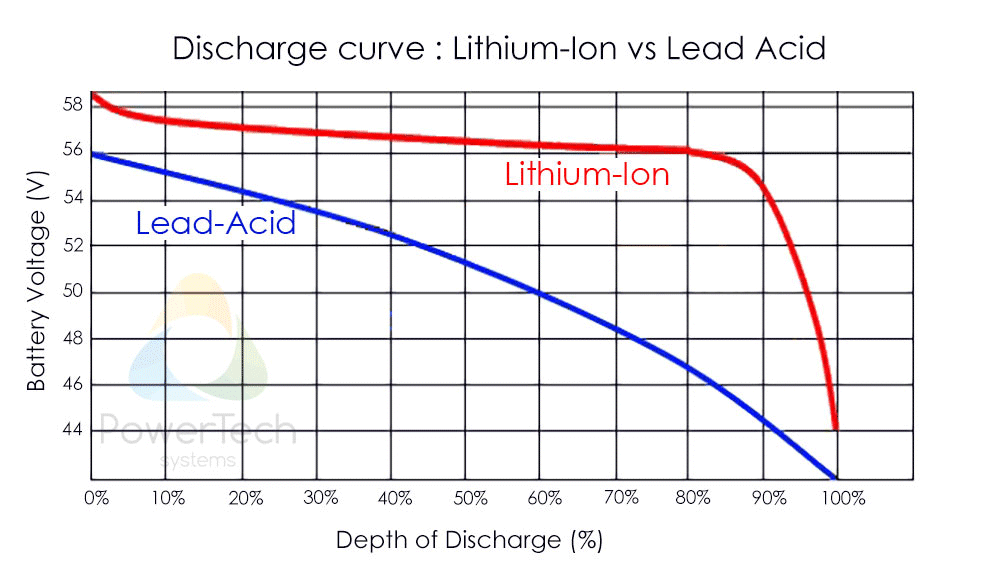
We need to install a shunt on the main negative of the battery terminal. The shunt will measure the capacity of the battery in Ah. The energy that goes into the battery with solar panels or a charger gets added, and the discharging through the inverter or DC fuse box is subtracted. That way, you will always know how much is left in your battery.
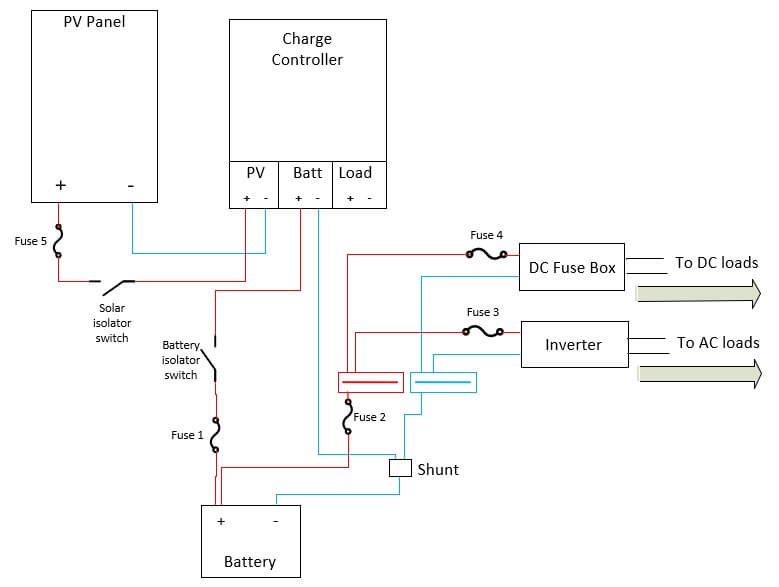
Conclusion
You need to consider some items while changing your batteries to lithium. But it is surely doable if you keep these points in mind. Always use insulated tools when working on batteries and wear safety glasses. Your old lead-acid battery should be recycled in your local center.
FAQ
Can I replace my car battery with a lithium battery?
No, lithium solar did a great video about this. Watch it here:
[custom-related-posts title=”Related Posts” none_text=”None found” order_by=”title” order=”ASC”]
I’m an off-grid enthusiast. I created this website to give clear and straight-to-the-point advice about solar power. I’m also the author of the book ‘Off-grid solar power simplified‘. Read more about me on my about page, check out my Youtube channel, or send me a message.